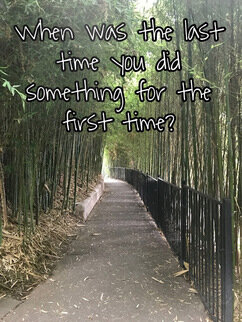The Value of Asking Questions
In our daily lives, we are bombarded with information. It may come in the form of an email, a phone call, or even a push notification, but the information is constantly flowing! So how do we digest all these information streams in a way that allows us to act, and respond, in the most appropriate way?
As someone who works in the information field, I can say, confidently, that asking questions is truly the key to understanding and can lead to a more productive conversation, deeper relationships, and ultimately, a solution. While asking follow up questions may seem like an obvious step to gain a deeper understanding, it’s not necessarily the go-to solution for everyone. In practice, it can be uncomfortable to ask questions. Asking questions puts you in a position to be vulnerable, after all, you are revealing that you don’t fully grasp a question or concept. You may be worried that you’ll be judged, or even mocked, for not understanding something that others seem to grasp. For the most part, people would prefer to be “in the know”; nobody wants to feel like an outsider.
Think Like a Librarian
In Library School, you learn about the reference interview. Librarians conduct reference interviews, which is basically a conversation with a patron, or client, with the purpose of gaining a deeper understanding of the requested information. It involves asking questions to better understand the information that a client needs, why they need it, and even, how they’re planning on using it.
The reference interview is a common practice, because even the most straightforward question can prove to be more complex as you dig deeper. You discover that people are not always sure what question they should be asking to get the information that they truly want. Without digging deeper, and having that follow up conversation, a librarian might not be able to effectively support the client. Ultimately, the value and impact of the deliverable correlates to the understanding of the question that was asked.
Demonstrating Knowledge Through Questions
While asking questions can feel like exposing your own ignorance, the practice of asking questions demonstrates your understanding and curiosity of a given subject. It shows that you’re actively thinking through a question or situation, and that you are committed and engaged in finding a solution.
By asking for clarity, you may reveal gaps in the original question, where the other person may have assumed you already had a piece of knowledge that you did not. I’ve been guilty of this, and always appreciate the ask for added context. We’re all so busy these days, that it can be easy to leave things unsaid, or even emails unsent!
Building Relationships through Conversation and Questions
Follow up conversations and questions can help to build rapport and gain trust. The act of active listening and responding to new information allows you to find a common ground with another person. You may end up bouncing ideas off of each other, or even, make a new discovery by simply sharing your knowledge and findings. A follow up conversation can help an interaction feel less transactional, and let’s face it, problem solving together is more fun than going at it alone!
Go Ahead and Ask!
So if you need clarity, or added context, don’t hold back with the questions! The act of asking questions shows that you are coming from a place of wanting to understand and striving to find a solution, even if you don’t get there on the first try.
Questions to get you started:
For my knowledge, could you tell me more about the project you’re working on and what you'd like to achieve?
Who is the audience/who is going to be using this information?
What is the use case?
What research have you already completed or What do you already know?








